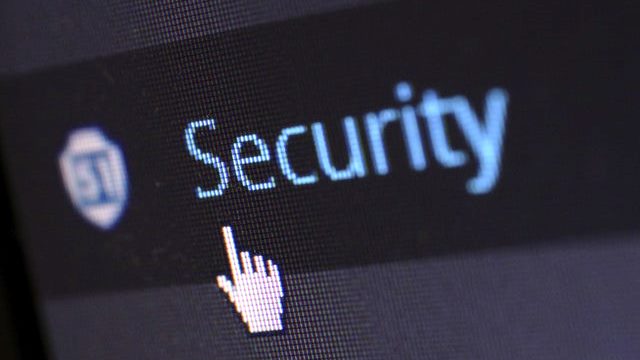Beware of New Email Security Threats!
Did you know that Cyber crime – or all the attacks that occur on electronic devices – is the industry that moves most money in the world?
When it comes to their victims, cybercriminals don’t discriminate between personal and professional accounts. Anyone is a target!
Most of the cyberattacks usually take place on mobile devices, PCs and tablets and they range from unwanted advertising, spyware with a mission to gather as much information about you as possible, the hijacking or complete blockage of your computer terminal and demanding a ransom for it to be unblocked.
What’s the main weapon against cybercrime?
Prevention.
If it’s too late for you and you’ve already been the victim of a cyberattack, our legal team can help you get everything back in order again.
But the best weapon against cybercrime, is prevention.
And that’s why in this article, we’d like to share important advice to help you become more aware of the increased risk of email security threats.
Possible Email hacking scams.
117 million LinkedIn passwords were stolen in 2016.
In 2018 these had been sold on the Deep Web.
What do they do with all these email addresses?
One of the latest email crimes involves a complex plot stating that the victim’s computer has been infected and a compromised video has been recorded while visiting pornographic websites.
In addition, the email ensures that the victim’s contacts have been obtained and a password associated with the account is normally provided to add to the email’s credibility. The mail threatens the victim by saying that such video and other private information will be send to their contacts if s/he doesn’t make a payment in Bitcoins.
In these cases, the bogus email is usually sent from your own mail.
The subject of the email could be of the style:
“You’re my victim”,
“You are my victim” or
“Re: XXXX-XXXX” (the password of the victim).
The text of the email, in most cases, is in English.
The body of the email usually threatens you by saying they’ll be sending a video to all your contacts in a compromised situation recorded while you were browsing pages of sexual content if the payment of the required amount is not made in less than 24 hours into a certain digital wallet.
They’ll be traying to deceive you by explaining that these supposed images would have been obtained after having infected your device, in addition to having obtained the list of his email contacts and social networks.
In order to give more credibility to the content of the mail in the eyes of the victim, a password linked to your account is added. This password may have been obtained after being filtered from a website.
What can you do?
If you have already received an email of this sort and you have not changed your password in the last year as it is highly recommended you should have done:
- Change your password immediately.
- If you use that email/password to access other websites, change it on those pages as well.
- Don’t open any emails from unknown users or emails that you have not requested. Delete them directly.
- Never answer any of these emails under any circumstances or send them any personal information.
- Change your passwords periodically.
You can also check the page Have I Been Pwned to find out if your email address has been the victim of a data leak.
False Mails with attached virus
There has been an improvement in recent months of the performance of this type of scams. How? Are we not more susceptible to scams and better informed about their consequences?
Well, the sender now uses data from a real company well-known in the field and somehow related to the same sector.
They also use the company’s signature and logo in the email.
The email address from which it is sent is also real – although it is spoofed – and it mimics the email the actual company would send.
What can you do if you’ve been sent a virus?
- If you have already received the email, and the attached email has not been opened, there is no problem, simply delete the email.
- If you have opened the attached file, disconnect the computer from the Cable / Wi-Fi network and download an antivirus.
- Don’t open email attachments that request you to allow macros or other actions that imply configuration changes.
- Don’t open emails from unknown users or emails that you have not requested, delete them directly.
- Don’t answer these emails or send personal information under any circumstances.
Worried? That’s not our intention.
We simply want you to be vigilant and aware of the significant risk posed by cyber crime and the fact that email accounts and bank account details are now a strong target.
So, when you are dealing with us, remember:
- Fuster & Associates’ bank details WILL NEVER change during a transaction.
- Nor will we EVER change our bank account details via email.
If you are in any doubt, please do not send funds to us electronically without speaking to a member of our team first to verify our account details.
And if you suspect you’ve been victim of a data leak, we urge you to find a trustworthy team of legal experts who can help you resolve this matter as soon as possible.
We want to help you navigate all the legal complexities that come with your home buying in Spain, but this article is legal information and should not be seen as legal advice.





